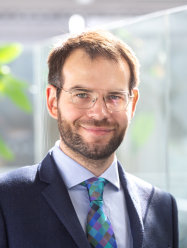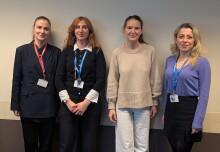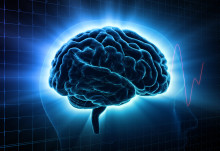
Professor Gast spoke at the Times Higher Education Asia Summit at Shenzhen's SUSTech

Artificial intelligence will transform higher education and science, President Alice Gast told a major summit in China today.
It is an astonishing thought that computers can be ‘creative’.
– Professor Alice Gast
President
Delivering the keynote address at the Times Higher Education Asia Universities Summit, 'Pursuing the Endless Frontier in the Era of AlphaGo,' Professor Gast said: “Artificial intelligence is already demonstrating its promise to advance research.
"At the same time, it presents challenges because of the pace of its advance and the disruptions that it will create. What will be its impacts on the future of the workplace?
 "How will it affect teaching? Will universities be able to respond effectively to the many changes created by the technological revolution?”
"How will it affect teaching? Will universities be able to respond effectively to the many changes created by the technological revolution?”
Professor Gast noted the many ways AI is being deployed in Asia: “In China, hospitals use virtual doctors to read CT scans. In Thailand, AI is being used to improve the care of cancer patients. In Singapore, room service robots powered by AI assist in customer service. In Vietnam, the potential of AI to help farming is being explored. And in Indonesia, AI is used to improve customer telecommunications services.”
“We are already beginning to see the revolution in action”, she said. “AI is beginning to demonstrate its promise to be a transformative tool for researchers, students, businesses and society."

Imperial's Data Science Institute
Man versus machine
One of the most exciting developments came in 2016 from the UK AI company Google DeepMind, Professor Gast said. “DeepMind’s AlphaGo defeated Lee Sedol, a professional Go player of 9 dan rank, in 2016.
"The play drew the attention and admiration of the global Go community. And it captured the imaginations of academics throughout the world.”
AlphaGo’s 4-1 defeat of the great Korean Go player was so surprising because Go is an especially complex game that “requires intuition and subtle thinking."

Deepmind's AlphaGo defeated Lee Sedol in 2016
"Players spend years studying strategy, playing and learning from a master. It is impossible for a computer to play by brute force due to the 10^170 possible moves” – more than the estimated number of atoms in the observable universe.
Professor Gast explained that “AlphaGo studied thousands of amateur games to learn the rules and then played itself millions of times, learning from each mistake and refining its moves. This reinforcement learning with neural network algorithms is a very effective way to optimise machine learning.
"The creative moves that AlphaGo made came from being free from biases passed down from generation to generation by Go masters. It is an astonishing thought that computers can be ‘creative’.”

The summit brings together higher education leaders from across the world
Human-machine collaboration
DeepMind’s work “to remove the constraints of human knowledge” is “both exciting and a bit frightening,” Professor Gast said.
“This ability for machines to learn from their mistakes is especially interesting. Rather than simply performing routine, non-dynamic tasks, machines have demonstrated their capability to deal with non-routine, complex matters.
"This opens a broad, new range of potential future applications… The ability to start with basic rules and not learn from human examples poses an interesting question about how humans should collaborate with such machines.”
Imperial is collaborating with DeepMind to improve clinical data sharing, task management and quality care in the NHS, as well as to diagnose diseases by analysing medical images.
Other researchers, including Professor Maja Pantic’s team at Imperial, are using AI to “help address societal issues and enhance lives on a personal level,” Professor Gast said.

Robot Zeno can help engage children with autism
The group are using AI with “audio, visual and facial recognition technologies to help children with autism improve their learning and emotional understanding”.
The team’s technological platform “can decipher sounds and visual clues. It is connected to a robot that interacts with the children. Those with autism spectrum disorder find the robot easier to interact with than another human. And because of that the robot can conduct simple lessons that a human cannot.”
Universities in the age of AlphaGo
In addition to these leaps forward, Professor Gast drew attention to the challenges caused by the “pace of change and the disruptions” created by AI and the fourth industrial revolution: “What will its impacts be on the future of the workplace? How will it affect teaching? Will universities be able to respond effectively to the technological revolution?”
Professor Gast argued that “university leaders have important roles to play in helping to manage the changes that define these times. These changes will affect our students. They will affect our staff. They will affect our neighbours. And they will affect society as a whole. What is the role of universities in the age of AlphaGo?”
Move forward, look back
Vannevar Bush (1890-1974), the American inventor whose wartime service included transatlantic partnership with former Imperial Rector Sir Henry Tizard, offered pertinent ideas seven decades ago, Professor Gast said.
Bush’s report to President Roosevelt, ‘Science, The Endless Frontier’ contains "insights that are as relevant today as they were in 1945... Starting points are known, end points are not."
Machines cannot replace the magic that occurs when bright, creative young people live and learn together in the company of highly dedicated faculty.
– Professor Charles Vest
Former President, MIT
The report, which led to the creation of the US National Science Foundation, made the case for “science as a proper concern of government, advocated for the importance of fundamental research, urged the removal of financial barriers to education, underscored the value of international collaboration… and emphasized the importance of competent and inspired teaching of science.”
Professor Gast said that Charles M Vest (1941-2013), another MIT academic who led the university for 14 years, “took on the mantle of Vannevar Bush”.

Former MIT president Charles M. Vest
Vest’s letter to the MIT community in 2000, titled ‘Disturbing the Educational Universe: Universities in the Digital Age-Dinosaurs or Prometheans?’, asked “Does the future of education, learning, and training belong to a new machine-based digital environment, or will the best learning remain a deeply human endeavor conducted person-to-person in a residential campus setting? I believe the answer is ‘Yes’—to both.”
Vest wrote: “Machines cannot replace the magic that occurs when bright, creative young people live and learn together in the company of highly dedicated faculty.”
Professor Gast quoted a further insight from Vest: “In order to serve well, universities must balance continuity and change—continuity of their deeper values and guiding principles, and commitment to intellectual excellence and the life of the mind, are essential."
During her address, Professor Gast outlined “the four core values for universities in the age of AI, the age of AlphaGo,” building on the legacy of Bush and Vest:
- Commitment to fundamental research, because, as Vest said, “Ignoring fundamental research is just another way of living for the short term at the expense of future generations.”
- Commitment to teaching, so that students in all disciplines are “comfortable and conversant with AI”, understanding “both its potential and limitations”.
- Commitment to collaboration to deal with the “explosion in data in areas such as healthcare, our microbiome, financial markets and cosmology” and use AI as “a tool to extract knowledge from these superhuman scales of information”. Professor Gast said: “The increased ability to work in new ways on complex issues will require high-level skills that are unlikely to be found within one university, one sector, one country or one region. The smart use of AI will require the expertise, insights and perspectives from a disparate range of people.”
- Commitment to a global perspective and responding to “concerns about cybersecurity, human rights and privacy, not to mention the obvious and significant impact on the labour markets” as well as developing countries. Universities “must continue to be sources of knowledge for all parts of the world and for all parts of society”.
“We need to be leaders, not just participants, in these times of change. Our students and our research must be more than simply relevant to the times. We should steer the way forward,” she concluded.
Professor Alice Gast wrote an opinion piece for Times Higher Education on universities in the age of AI.
- Image credits: (Main image) - SUSTech; (Data Science Institute) - Thomas Angus / Imperial College London; (AlphaGo) - KC Look (shutterstock.com); (Charles Vest) - MIT (web.mit.edu)
Article text (excluding photos or graphics) available under an Attribution-NonCommercial-ShareAlike Creative Commons license.
Photos and graphics subject to third party copyright used with permission or © Imperial College London.
Reporter

Andrew Scheuber
Communications Division

Contact details
Email: press.office@imperial.ac.uk
Show all stories by this author





Leave a comment
Your comment may be published, displaying your name as you provide it, unless you request otherwise. Your contact details will never be published.